|
|
| |
|
Topical Panels
Panel I: "Physics careers outside academia"
featuring panelists:
Laura Blomeley, Sandy Eix, Reena Meijer-Drees, Patricia Mooney
Panel II: "Gender issues in Physics and Science"
featuring panelists:
Elizabeth Croft, Judi Hess, Brenda Matthews, Toni Schmader
Panel III: "Transitions: undergraduate to graduate school or a job, how to find a postdoc position"
featuring panelists:
Anne Broadbent, Sarah Burke, Cynthia Heiner, Kristin Woodley
Invited Panelists
Physics careers outside academia:
Laura Blomeley, Reactor Physicist, Atomic Energy of Canada Ltd.
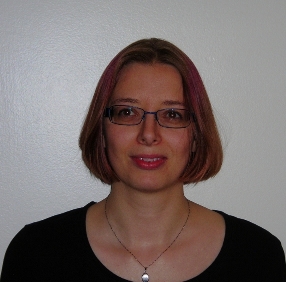 Short Biography: Laura Blomeley is a reactor physicist with the Computational Reactor Physics Branch at Atomic Energy of Canada Limited (AECL), based at Chalk River Laboratories in Ontario. Her recent work includes criticality safety, code validation, and nuclear data sensitivity and uncertainty analysis.
This work supports current operations of laboratory research and commercial nuclear reactors as well as research in the physics aspects of advanced reactor design concepts.
Laura obtained a B.Sc. (Honours) from the University of Manitoba in 2003 and a M.Sc. from McGill University in 2007. Graduate research included time with the TITAN collaboration at TRIUMF, in Vancouver. After graduating, Laura considered further graduate studies but instead joined AECL in 2008.
Short Biography: Laura Blomeley is a reactor physicist with the Computational Reactor Physics Branch at Atomic Energy of Canada Limited (AECL), based at Chalk River Laboratories in Ontario. Her recent work includes criticality safety, code validation, and nuclear data sensitivity and uncertainty analysis.
This work supports current operations of laboratory research and commercial nuclear reactors as well as research in the physics aspects of advanced reactor design concepts.
Laura obtained a B.Sc. (Honours) from the University of Manitoba in 2003 and a M.Sc. from McGill University in 2007. Graduate research included time with the TITAN collaboration at TRIUMF, in Vancouver. After graduating, Laura considered further graduate studies but instead joined AECL in 2008.
Sandy Eix, Science Learning Lead, Science World
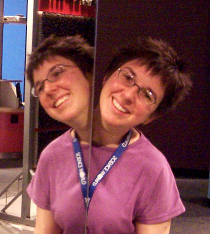 Short Biography:
Sandy Eix has a BSc in Physics from Waterloo, a BEd from Queen's, and an MSc and PhD in Physics from SFU. Despite all of this, she is a relatively normal human being who has been inventing shows, programs, and exhibits at Science World for about 15 years.
Her job lets her play with all sorts of science and share her discoveries with kids of all ages. Some highlights so far have included developing a great big physics gallery, running a summer camp for teachers, creating science resources for preschoolers, being interviewed on national radio, and project-managing Body Worlds.
When she's not thinking about science education or travelling to remote corners of BC, she applies her curious mind to Cape Breton fiddle music, navigating East Vancouver by bicycle, and learning to speak French. She finds a great deal of joy in exploring the world with her young daughter, who dubbed her "la fée des expériences" (the experiment fairy).
Short Biography:
Sandy Eix has a BSc in Physics from Waterloo, a BEd from Queen's, and an MSc and PhD in Physics from SFU. Despite all of this, she is a relatively normal human being who has been inventing shows, programs, and exhibits at Science World for about 15 years.
Her job lets her play with all sorts of science and share her discoveries with kids of all ages. Some highlights so far have included developing a great big physics gallery, running a summer camp for teachers, creating science resources for preschoolers, being interviewed on national radio, and project-managing Body Worlds.
When she's not thinking about science education or travelling to remote corners of BC, she applies her curious mind to Cape Breton fiddle music, navigating East Vancouver by bicycle, and learning to speak French. She finds a great deal of joy in exploring the world with her young daughter, who dubbed her "la fée des expériences" (the experiment fairy).
Reena Meijer-Drees, Principal Research Scientist, Honeywell
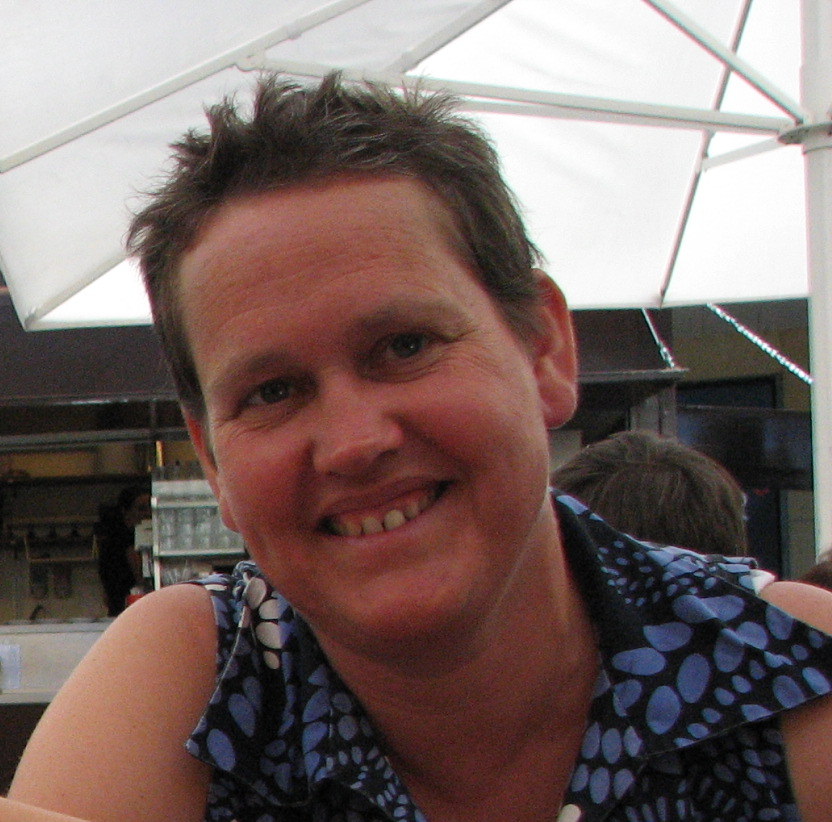 Short Biography:
Reena completed her BSc in Physics (Co-op) in 1986 at U of Waterloo, and then did her MSc and PhD in high-energy physics at UBC, graduating in 1991.
She worked as a postdoc for several years in academia, at a number of accelerators in Europe and finally ending up 2 km underground at the Creighton Nickel Mine in Sudbury, Ontario, watching solar neutrinos.
After her husband (also a physicist) got an industry job in the telecommunications industry back in Vancouver, Reena left the itinerant academic life for a slightly more settled life in industry.
Starting in 2000, she's held a variety of positions, some of which have had nothing whatsoever to do with physics. She's lived through bad office politics, layoffs, and job-hunting, and is currently a research physicist with Honeywell in North Vancouver, a job which does in fact require a PhD!
At Honeywell, her job involves designing sensors for quality control in paper mills. She is working on her 4th patent.
In her free time, Reena plays guitar with her 2 teenage sons, and advocates for car-free living. She got to drive a tram part-time during the 2010 Olympics.
Short Biography:
Reena completed her BSc in Physics (Co-op) in 1986 at U of Waterloo, and then did her MSc and PhD in high-energy physics at UBC, graduating in 1991.
She worked as a postdoc for several years in academia, at a number of accelerators in Europe and finally ending up 2 km underground at the Creighton Nickel Mine in Sudbury, Ontario, watching solar neutrinos.
After her husband (also a physicist) got an industry job in the telecommunications industry back in Vancouver, Reena left the itinerant academic life for a slightly more settled life in industry.
Starting in 2000, she's held a variety of positions, some of which have had nothing whatsoever to do with physics. She's lived through bad office politics, layoffs, and job-hunting, and is currently a research physicist with Honeywell in North Vancouver, a job which does in fact require a PhD!
At Honeywell, her job involves designing sensors for quality control in paper mills. She is working on her 4th patent.
In her free time, Reena plays guitar with her 2 teenage sons, and advocates for car-free living. She got to drive a tram part-time during the 2010 Olympics.
Patricia Mooney, Professor of Physics, SFU
 Short Biography:
Patricia M. Mooney is Professor and Tier 1 Canada Research Chair in Semiconductor Physics at Simon Fraser University.
Prior to joining SFU Physics in 2005, she was a Research Staff Member at the IBM T.J. Watson Research Center, Yorktown Heights,
NY for 25 years. Dr. Mooney is the author of over 180 publications,
and also has 18 issued patents. She received two outstanding Technical Achievement Awards from the IBM Corporation in
addition to several patent awards.
Dr. Mooney is a Fellow of both the American Physical Society (APS) and the American Association for the Advancement of Science (AAAS)
She has served on numerous boards and councils for the American Institute of Physics,
NSERC Grants, APS Council, APS Executive Board and the APS Budget Committee.
and has served on many APS Committees.
She has been a member of the editorial board of Physical Review B, Applied Physics Letters/Journal of Applied Physics
and the Journal of Materials Science: Materials in Electronics.
She was recently a member of the International Advisory Board of the International Conference on Defects in Semiconductors.
Short Biography:
Patricia M. Mooney is Professor and Tier 1 Canada Research Chair in Semiconductor Physics at Simon Fraser University.
Prior to joining SFU Physics in 2005, she was a Research Staff Member at the IBM T.J. Watson Research Center, Yorktown Heights,
NY for 25 years. Dr. Mooney is the author of over 180 publications,
and also has 18 issued patents. She received two outstanding Technical Achievement Awards from the IBM Corporation in
addition to several patent awards.
Dr. Mooney is a Fellow of both the American Physical Society (APS) and the American Association for the Advancement of Science (AAAS)
She has served on numerous boards and councils for the American Institute of Physics,
NSERC Grants, APS Council, APS Executive Board and the APS Budget Committee.
and has served on many APS Committees.
She has been a member of the editorial board of Physical Review B, Applied Physics Letters/Journal of Applied Physics
and the Journal of Materials Science: Materials in Electronics.
She was recently a member of the International Advisory Board of the International Conference on Defects in Semiconductors.
Gender issues in physics and science:
Elizabeth Croft, Professor and NSERC Chair for Women in Science and Engineering (BC-Yukon), UBC
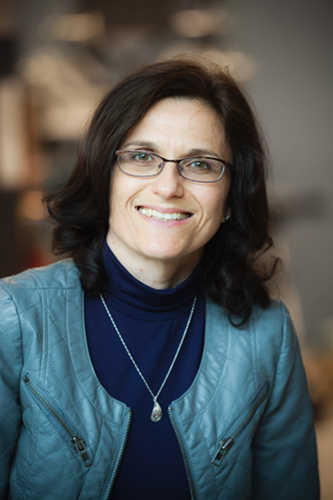 Short Biography:
Elizabeth A. Croft, B.A.Sc. (88, Mech, UBC), M.A.Sc (92, Mech, Waterloo),
Ph.D. (95, Mech, Toronto), PEng, FEC, FASME, is Professor and NSERC Chair for Women
in Science and Engineering (BC-Yukon) at UBC and leader of the WWEST program for women
in engineering, science and technology. The primary focus of this initiative is to promote
Science and Engineering as an excellent career choice for women and other under-represented
groups, and to identify and eliminate barriers that result in attrition from these career paths.
She is also the director of the Collaborative Advanced Robotics and Intelligent Systems (CARIS)
Laboratory at UBC. Her research investigates how robotic systems can behave, and be perceived to
behave, in a safe, predictable, and helpful manner, as well has how people interact with and
understand robotic systems. Applications of this work range from manufacturing assembly to
healthcare and assistive technology.
As a founding instructor for the MECH2 program Elizabeth was co-recipient of the 2005 ASME
Curriculum development award, the 2007 UBC Alfred Scow award and the 2008 Alan Blizzard Award.
She is a registered Professional Engineer, Fellow of Engineers Canada (2008), Fellow of the
American Society of Mechanical Engineers (2009) and member of IEEE.
Short Biography:
Elizabeth A. Croft, B.A.Sc. (88, Mech, UBC), M.A.Sc (92, Mech, Waterloo),
Ph.D. (95, Mech, Toronto), PEng, FEC, FASME, is Professor and NSERC Chair for Women
in Science and Engineering (BC-Yukon) at UBC and leader of the WWEST program for women
in engineering, science and technology. The primary focus of this initiative is to promote
Science and Engineering as an excellent career choice for women and other under-represented
groups, and to identify and eliminate barriers that result in attrition from these career paths.
She is also the director of the Collaborative Advanced Robotics and Intelligent Systems (CARIS)
Laboratory at UBC. Her research investigates how robotic systems can behave, and be perceived to
behave, in a safe, predictable, and helpful manner, as well has how people interact with and
understand robotic systems. Applications of this work range from manufacturing assembly to
healthcare and assistive technology.
As a founding instructor for the MECH2 program Elizabeth was co-recipient of the 2005 ASME
Curriculum development award, the 2007 UBC Alfred Scow award and the 2008 Alan Blizzard Award.
She is a registered Professional Engineer, Fellow of Engineers Canada (2008), Fellow of the
American Society of Mechanical Engineers (2009) and member of IEEE.
Judi Hess, CEO CopperLeaf Technologies
 Short Biography:
Judi took on the role of CEO at CopperLeaf in August 2009. In 1995 she
joined Burnaby-based Creo Inc. from MacDonald Dettwiler and
Associates, beginning as a program manager and rising to become
president in 2002, a position she held until Creo was acquired by
Eastman Kodak for just under $1 Billion USD in 2005. As part of
Eastman Kodak, Judi took on the role of general manager, workflow and
prepress equipment; and vice-president of the graphic communications
group. Two years later, her role was expanded to include management of
a portfolio of software and start-up businesses and she was appointed
a corporate officer and vice-president of Eastman Kodak and the head
of Kodak Canada. (MacDonald Dettwiler, Creo, Kodak are all local high-tech companies which
employ many physicists/engineering physicists).
Judi is currently a member of the Premier's Technology
Council of British Columbia and a member of the board of Acetech.
Originally from Toronto, Judi and her family live in Vancouver. She
holds an honours bachelor's degree in mathematics from the University
of Waterloo, and is an avid downhill skier.
Short Biography:
Judi took on the role of CEO at CopperLeaf in August 2009. In 1995 she
joined Burnaby-based Creo Inc. from MacDonald Dettwiler and
Associates, beginning as a program manager and rising to become
president in 2002, a position she held until Creo was acquired by
Eastman Kodak for just under $1 Billion USD in 2005. As part of
Eastman Kodak, Judi took on the role of general manager, workflow and
prepress equipment; and vice-president of the graphic communications
group. Two years later, her role was expanded to include management of
a portfolio of software and start-up businesses and she was appointed
a corporate officer and vice-president of Eastman Kodak and the head
of Kodak Canada. (MacDonald Dettwiler, Creo, Kodak are all local high-tech companies which
employ many physicists/engineering physicists).
Judi is currently a member of the Premier's Technology
Council of British Columbia and a member of the board of Acetech.
Originally from Toronto, Judi and her family live in Vancouver. She
holds an honours bachelor's degree in mathematics from the University
of Waterloo, and is an avid downhill skier.
Brenda Matthews, Associate Research Officer, Herzberg Institute of Astrophysics
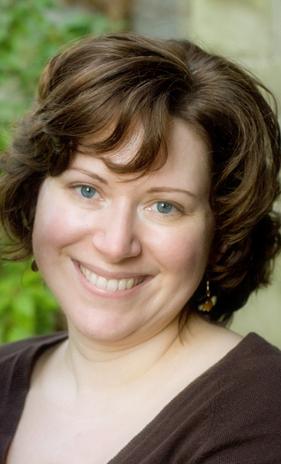 Short Biography:
Brenda is an Associate Research Officer at the Herzberg Institute of Astrophysics, an institute
associated with in the National Research Council of Canada. Her research focusses on the field of star formation, utilizing submillimeter and millimeter radio telescopes to study various facets of the early beginnings of stars in our galaxy.
Short Biography:
Brenda is an Associate Research Officer at the Herzberg Institute of Astrophysics, an institute
associated with in the National Research Council of Canada. Her research focusses on the field of star formation, utilizing submillimeter and millimeter radio telescopes to study various facets of the early beginnings of stars in our galaxy.
Toni Schmader, Canada Research Chair in Social Psychology, UBC
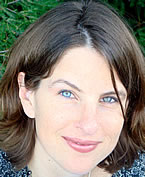 Short Biography:
Toni Schmader is a Canada Research Chair in Social Psychology and Professor at UBC.
She received her Ph.D. in Social Psychology from the University of California, Santa Barbara in 1999.
She spent 10 years on the faculty at the University of Arizona and has held a visiting position at Harvard University.
Her research has examined how stereotypes undermine the interest and success of women in science, technology, engineering, and math.
In addition, her research examines the interplay between self and social identity, particularly when one's social identity is accorded lower status or is targeted by negative stereotypes.
In exploring these issues, her research draws upon and extends existing work on social stigma, social justice, social cognition, intergroup emotion, self-esteem, and motivation and performance.
Short Biography:
Toni Schmader is a Canada Research Chair in Social Psychology and Professor at UBC.
She received her Ph.D. in Social Psychology from the University of California, Santa Barbara in 1999.
She spent 10 years on the faculty at the University of Arizona and has held a visiting position at Harvard University.
Her research has examined how stereotypes undermine the interest and success of women in science, technology, engineering, and math.
In addition, her research examines the interplay between self and social identity, particularly when one's social identity is accorded lower status or is targeted by negative stereotypes.
In exploring these issues, her research draws upon and extends existing work on social stigma, social justice, social cognition, intergroup emotion, self-esteem, and motivation and performance.
Transitions: Undergraduate student, to graduate student, to postdoc, and beyond
Anne Broadbent, Post-doctoral Researcher, Institute for Quatum Computing
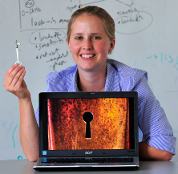 Short Biography: Anne Broadbent is a post-doctoral researcher at the Institute for Quantum Computing at the University of Waterloo and holds a Junior Fellowship from the Canadian Institute for Advanced Research (CIFAR). In 2011, she completed an NSERC Postdoctoral Fellowship, also at the Institute for Quantum Computing. She received her Ph.D. and M.Sc. from the
Université de Montréal and holds a B.Math from the University of Waterloo. Anne has been recognized with numerous awards and honours during her academic career, including the 2009 NSERC Doctoral Prize and the 2010 John Charles Polanyi Prize. Anne is currently researching a
variety of quantum protocols, with the goal of devising and implementing secure and efficient methods for information processing within a network of quantum computers, as well as giving us a better understanding of the physical world as predicted by quantum mechanics.
Short Biography: Anne Broadbent is a post-doctoral researcher at the Institute for Quantum Computing at the University of Waterloo and holds a Junior Fellowship from the Canadian Institute for Advanced Research (CIFAR). In 2011, she completed an NSERC Postdoctoral Fellowship, also at the Institute for Quantum Computing. She received her Ph.D. and M.Sc. from the
Université de Montréal and holds a B.Math from the University of Waterloo. Anne has been recognized with numerous awards and honours during her academic career, including the 2009 NSERC Doctoral Prize and the 2010 John Charles Polanyi Prize. Anne is currently researching a
variety of quantum protocols, with the goal of devising and implementing secure and efficient methods for information processing within a network of quantum computers, as well as giving us a better understanding of the physical world as predicted by quantum mechanics.
Sarah Burke, Assistant Professor of Physics, UBC
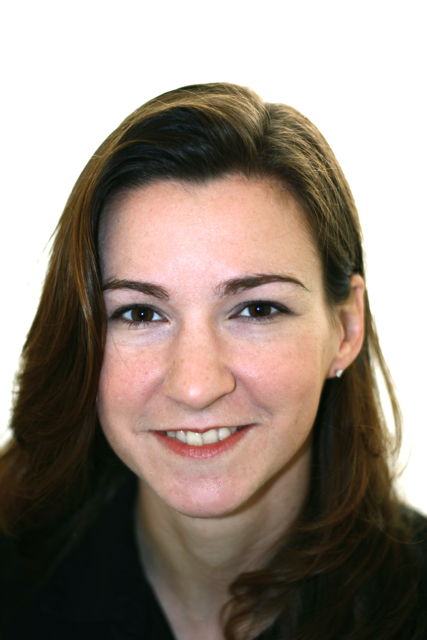 Short Biography:
Sarah Burke is an Assistant Professor and Tier 2 Canada Research Chair in Nanoscience at the University of British Columbia, joining the departments of Physics & Astronomy and Chemistry in July 2010.
Sarah completed her B.Sc. in Physics at Dalhousie University in Halifax, NS in 2002, where she was first exposed to the research environment and was introduced to the technique of Scanning Probe Microscopy that she continues to apply in her own lab. She went on to pursue a M.Sc. (2005) and Ph.D. (2009) in Experimental Condensed Matter Physics at McGill University in Montreal during which she held NSERC Postgraduate and Canada Graduate scholarships.
Her work there allowed her to explore, on a molecular and atomic scale, the formation of nanoscale clusters of molecules for molecular electronics.
After her PhD, Sarah was awarded an NSERC Postdoctoral fellowship, which she took up at the University of California Berkeley 2009-2010, where she worked on exploring the electronic properties of graphene nanostructures with Scanning Tunneling Microscopy.
Short Biography:
Sarah Burke is an Assistant Professor and Tier 2 Canada Research Chair in Nanoscience at the University of British Columbia, joining the departments of Physics & Astronomy and Chemistry in July 2010.
Sarah completed her B.Sc. in Physics at Dalhousie University in Halifax, NS in 2002, where she was first exposed to the research environment and was introduced to the technique of Scanning Probe Microscopy that she continues to apply in her own lab. She went on to pursue a M.Sc. (2005) and Ph.D. (2009) in Experimental Condensed Matter Physics at McGill University in Montreal during which she held NSERC Postgraduate and Canada Graduate scholarships.
Her work there allowed her to explore, on a molecular and atomic scale, the formation of nanoscale clusters of molecules for molecular electronics.
After her PhD, Sarah was awarded an NSERC Postdoctoral fellowship, which she took up at the University of California Berkeley 2009-2010, where she worked on exploring the electronic properties of graphene nanostructures with Scanning Tunneling Microscopy.
Cynthia Heiner, Postdoctoral Researcher and Lecturer, UBC
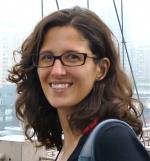 Short Biography:
Cynthia Heiner earned her BSc degree in physics at the University of New Hampshire in 2002. She first became excited about experimental physics through summer undergraduate research programs at Vanderbilt University and Columbia University. She continued to study physics in Berlin, Germany, working on experiments in solid state physics for her Masters at the Max Born Institute and atomic and molecular physics for her doctoral research on a molecular synchrotron at the Fritz Haber Institute (FHI) of the Max Planck Society. In 2010, after almost a decade in the lab, Cynthia turned her attention towards the classroom and began
doing physics education research with the Carl Wieman Science Education Initiative at the University of British Columbia. She currently works as a post-doctoral fellow and sessional lecturer in the Physics and Astronomy department at UBC. Her research interests include investigating students' long-term retention of fundamental physics as well as the development of active learning course materials for use in large lectures to better engage the students and increase their understanding of physics concepts.
Short Biography:
Cynthia Heiner earned her BSc degree in physics at the University of New Hampshire in 2002. She first became excited about experimental physics through summer undergraduate research programs at Vanderbilt University and Columbia University. She continued to study physics in Berlin, Germany, working on experiments in solid state physics for her Masters at the Max Born Institute and atomic and molecular physics for her doctoral research on a molecular synchrotron at the Fritz Haber Institute (FHI) of the Max Planck Society. In 2010, after almost a decade in the lab, Cynthia turned her attention towards the classroom and began
doing physics education research with the Carl Wieman Science Education Initiative at the University of British Columbia. She currently works as a post-doctoral fellow and sessional lecturer in the Physics and Astronomy department at UBC. Her research interests include investigating students' long-term retention of fundamental physics as well as the development of active learning course materials for use in large lectures to better engage the students and increase their understanding of physics concepts.
Kristin Woodley, Post-doctoral Researcher, UBC
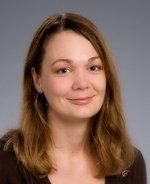 Short Biography: Kristin Woodley is currently a post-doctoral researcher at UBC in astronomy. She received her Bachelor of Science (honours) at the University of Waterloo and first became excited about astronomy while completing an undergraduate research project in radio astronomy.
She graduated with a Master's and PhD from McMaster University in observational astronomy studying extragalactic star clusters. Kristin is now at UBC for a postdoctoral research fellowship continuing her research in astronomy.
Having been at UBC for 3 years now, she will be starting a second postdoc at the University of California Santa Cruz in September 2012 working with the SAGES (Study of the Astrophysics of Extragalactic Star clusters) collaboration.
Short Biography: Kristin Woodley is currently a post-doctoral researcher at UBC in astronomy. She received her Bachelor of Science (honours) at the University of Waterloo and first became excited about astronomy while completing an undergraduate research project in radio astronomy.
She graduated with a Master's and PhD from McMaster University in observational astronomy studying extragalactic star clusters. Kristin is now at UBC for a postdoctoral research fellowship continuing her research in astronomy.
Having been at UBC for 3 years now, she will be starting a second postdoc at the University of California Santa Cruz in September 2012 working with the SAGES (Study of the Astrophysics of Extragalactic Star clusters) collaboration.
|
|
|
|